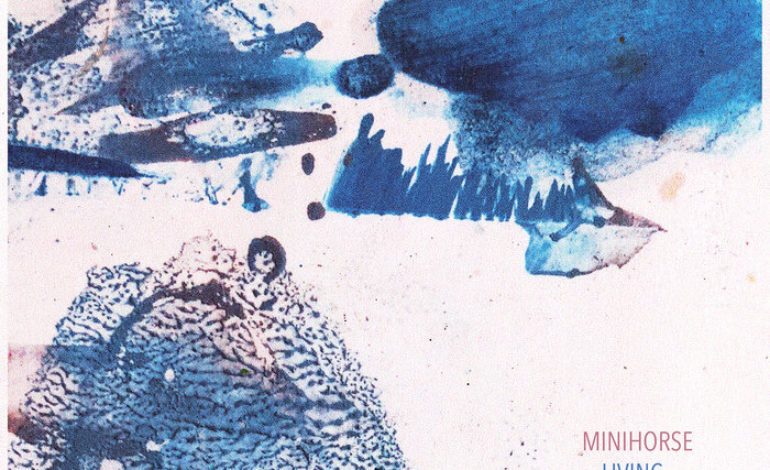

Dynamic, hyper-melodic, saturated sounds
Living Room Art, minihorse’s first LP, belies its debut-album label and impresses with ten carefully composed songs that ambitiously reach into and across a handful of genres. Each track uses the full aural canvas by interleaving airy vocals, guitars and a round-sounding bass and drum pairing. Despite the sheer amount of distortion and sound output, they manage to create a warm analog tone and avoid any unintentional harsh edges. It would be a miscategorization to label minihorse as a shoegaze or grunge outfit, even if some of their instrumentation borrows from those styles. Their affinity for unpredictable chord changes and tightly delineated song structure evince a greater musical understanding.
“Living Room Art” begins the album with a guitar squeal that moves directly into a progression played simultaneously by the guitar, bass and drums. The vocal tone is soft and subtly accompanied by a nice harmony, but it is not so quiet where it is overwhelmed by the instruments. A brief choral organ part, voiced by a synthesizer, introduces “Drink You Dry.” Like the opener, overdriven guitar and powerful bass support a dynamic difference between verse and chorus that resolves into guitar work that gradually ends the track.
All instruments are toned down and their volumes turned down for “Summer Itch.” In contrast to the first two songs, it drifts away from the grunge blend of sounds and allows the individual instruments to separate in the mix. “Older” employs the same technique as “Drink You Dry,” this time starting with a home recording of an out of guitar replete with ambient noise. The original chord sequence returns in the form of fully electrified guitar and slightly sneering vocals to create a sound that wouldn’t seem out of place on a Veruca Salt album.
“Unstuck,” hints at its gentle delivery immediately with a synthesizer part that closely resembles falling water droplets. Minihorse once again decisively shifts to the body of the song, carried by acoustic and cleanly strummed electric guitars. The high point is the quiet, articulated singing that carries the best melody of the album. At under two minutes, “King of the Concrete” is a promising vignette built around distorted vocals and a heavily reverberated riff that may leave some listeners wishing that the band had further developed it.
One of the notable qualities of Living Room Art is the transparency of the instruments and vocals regardless of how they are overdriven or distorted. “Been Around” exemplifies this characteristic by miking the uptempo acoustic guitar in a way that the percussive striking of the strings and resultant over-vibration can be heard. Minihorse also pays close attention to small details by adding in a variety of sounds, some unusual and synthetic, some soft and delicate, like the piano part near the end of “Cold Calls.” “Misophonia” completes the collection and reiterates minihorse’s willingness to take chances rather than settle for the obvious melodic resolution.
On Living Room Art, the band takes chances that most new bands might shy away from. The dynamics between songs, as well as those within them and the blend of fleshed-out sounds with original songwriting, speak to minihorse’s potential and create a wonderful album. The selection has enough creativity and quality to win over listeners with just a few plays.
